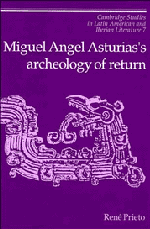Book contents
Conclusion: From death unto life
Published online by Cambridge University Press: 04 February 2010
Summary
Estás hoy tú y mañana
otro igual a ti seguirá en la espera.
No hay prisa ni exigencia.
Los hombres no se acaban.
Aquí había un valle, ahora se alza un monte.
Aliá había un cerro, ahora hay un barranco.
El mar petrificado se convirtió en montaña
y se cristalizaron relámpagos en lagos.
Sobrevivir a todos los cambios es tu sino.
No hay prisa ni exigencia. Los hombres no
se acaban.
Miguel Angel Asturias, “Sabiduría indígena”Psychoanalytical theory and the bitter facts of contemporary history suggest that mankind is reaching the end of the road. Psychoanalytical theory declares that the end of this road is the dominion of death-in-life. History has brought mankind to that pinnacle on which the total obliteration of mankind is at last a practical possibility. At this moment of history the friends of the life instinct must warn that the victory of death is by no means impossible.
Norman O. Brown, Life Against DeathWe have repeatedly stated that Asturias was a firm believer in the “magical” power of language (Harss, 102–106). In his hands, words were instruments that could inspire, convince, and educate; with cunning and skill, they might even be wielded to uproot the misconceptions and prejudices of a semifeudal country such as Guatemala and to indicate the path to emancipation and a better future. The author of El problema social del indio (1923) envisioned change as a gradual process that could transform his homeland and saw himself as the high priest of a new cult, a Gran Lengua whose task would be to heal the chaos that followed the conquest and threw the Indian into a state of alienation, backwardness and grief.
- Type
- Chapter
- Information
- Miguel Angel Asturias's Archeology of Return , pp. 238 - 254Publisher: Cambridge University PressPrint publication year: 1993



